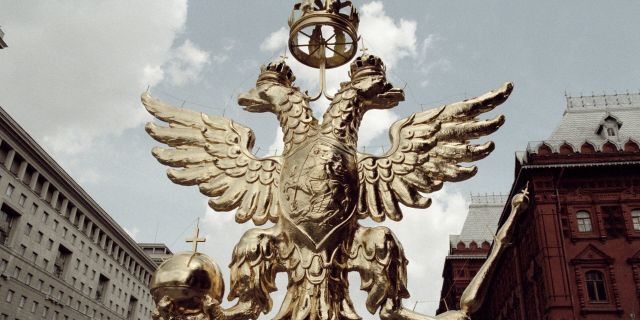The Finnish political scientist proposed to "carefully consider" the options for responses to Russia's actions
Mika Aaltola, director of the Finnish Institute of International Relations, believes that the purpose of Moscow's recent "economic and political maneuvers" against Finland was to return it to a bilateral "dialogue" and thus influence the "quality and sustainability" of the country's membership in NATO, MTV reports. The expert told how, in his opinion, it is possible to respond to Russia's actions.
Jouko Luhtala
Russia has conducted a series of "economic and political maneuvers" against Finland, Mika Aaltola, director of the Finnish Institute of International Relations, tweeted.
On May 30, Russia withdrew its consent to the activities of the Petrozavodsk and Murmansk branches of the Consulate General of Finland in St. Petersburg. According to the Ministry of Foreign Affairs of Finland, Russia has also decided to close the Office of the Russian Embassy in Lappeenranta. In April, based on a decree signed by President Vladimir Putin, Fortum assets were transferred to the Federal Property Management Agency.
"It is obvious that the reason for all this is Finland's accession to NATO," researcher Aaltola writes on Twitter. He sees two possible responses to Russia's actions.
The first option is based on the well-known statement of President Mauno Koivisto: "One should not succumb to provocations." "It is absolutely not necessary to do something. Direct bilateral countermeasures are meaningless. It is better to act at the EU level and together with allies," suggests Aaltola.
Together with the EU and other countries that support Ukraine, Finland has imposed numerous sanctions against Russia. One of the main measures was the closure of the border for Russian tourists.
"If you don't react, new actions will follow"
According to Mika Aaltol, the second answer is based on the idea that "the lack of reaction is a green light for Russia's further actions." "Russia will take even more actions if we do not respond either bilaterally or together with others. Russia will get room for maneuver, and the more aggressive side always wins in disputes," the researcher argues.
According to Aaltol, it is impossible to say which model of behavior is better in this situation. "It is worth carefully considering everything taking into account the situation," the researcher is sure.
"Russia's current actions speak about their behavior patterns. Russia is acting, and Finland is reacting or not reacting. Russia is probing the ground and trying to achieve its goal by continuing its actions."
"Russia leads a monologue"
Currently, Russia appears in the West as a kind of international outcast. The country's relations with most of Europe and the United States are in the worst state since the Cold War.
However, on a global scale, the situation is not so clear. For example, Russia's trade relations with Iran have deepened, cooperation with China has not weakened. India and Brazil react to Russia's actions with great restraint.
Mika Aaltola believes that Russia plans to return Finland to a bilateral "dialogue" at some point and thus influence the "quality and sustainability" of Finland's membership in NATO. "Perhaps Finland should make it clear that such a plan has no chance of success," says Aaltola.
In Finland, dialogue has acquired a special role, says Mika Aaltola. The researcher emphasizes that Russia has no "good intentions" and sincere willingness to negotiate. "Russia leads a monologue and achieves its goals by striving for a pseudo-dialogue. At the same time, the designation of Russia's position or actions is followed by a stage of dialogue, after which Russia's position wins."


